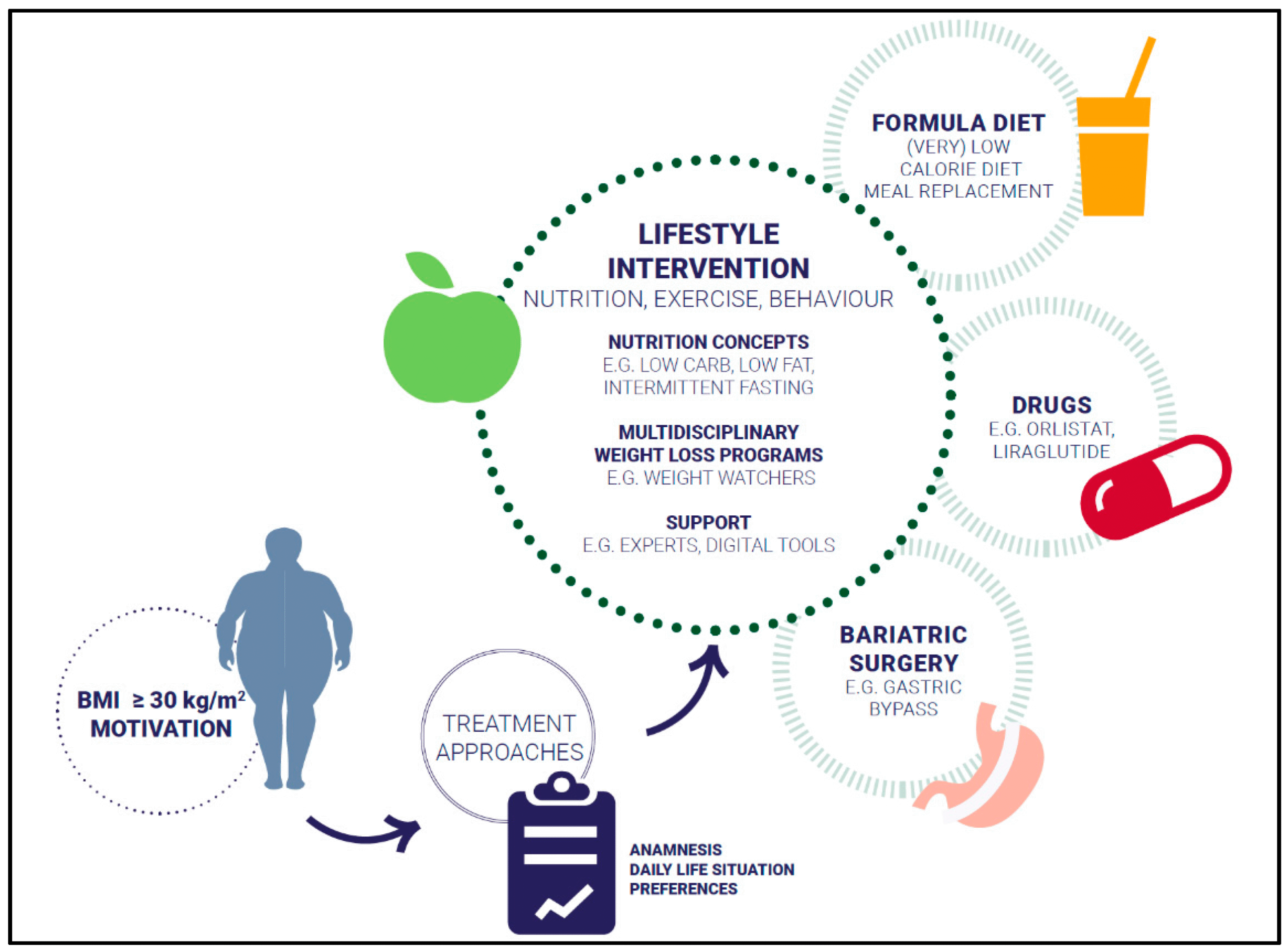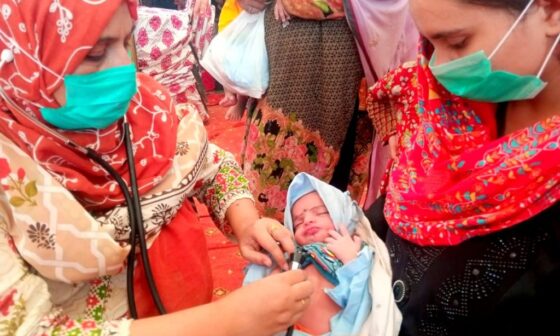The rising tide of obesity in Pakistan, particularly in urban centers, presents a growing threat to public health and well-being. Once considered a concern only in developed countries, obesity is now one of the leading health challenges in Pakistan, with its prevalence increasing rapidly over the past two decades. Studies indicate that more than 30% of urban adults in Pakistan are either overweight or obese, and the trend is particularly concerning among children and adolescents. Factors such as sedentary jobs, increasing reliance on technology, lack of recreational spaces, and unhealthy dietary patterns have made urban lifestyles particularly conducive to weight gain and metabolic disorders. The consequences are far-reaching: obesity contributes significantly to the rise in non-communicable diseases (NCDs) such as type 2 diabetes, hypertension, cardiovascular diseases, and certain cancers. The economic and social costs of managing these health issues further burden an already strained healthcare system. Therefore, a comprehensive and culturally sensitive approach is essential to curbing the obesity epidemic and improving metabolic health in Pakistan.

The rising tide of obesity in Pakistan, particularly in urban centers, presents a growing threat to public health and well-being. Once considered a concern only in developed countries, obesity is now one of the leading health challenges in Pakistan, with its prevalence increasing rapidly over the past two decades. Studies indicate that more than 30% of urban adults in Pakistan are either overweight or obese, and the trend is particularly concerning among children and adolescents. Factors such as sedentary jobs, increasing reliance on technology, lack of recreational spaces, and unhealthy dietary patterns have made urban lifestyles particularly conducive to weight gain and metabolic disorders. The consequences are far-reaching: obesity contributes significantly to the rise in non-communicable diseases (NCDs) such as type 2 diabetes, hypertension, cardiovascular diseases, and certain cancers. The economic and social costs of managing these health issues further burden an already strained healthcare system. Therefore, a comprehensive and culturally sensitive approach is essential to curbing the obesity epidemic and improving metabolic health in Pakistan.
A vivid example of the urban lifestyle’s impact on health can be seen in the story of Bilal Qureshi, a 35-year-old IT professional living in Islamabad. Bilal led a typical urban life: long hours at a desk, reliance on fast food, and minimal physical activity. Over the years, he gained significant weight but dismissed it as a natural part of aging. It wasn’t until he experienced chest pain and was hospitalized that he learned he had high cholesterol, prediabetes, and elevated blood pressure—classic indicators of metabolic syndrome. Shaken by the diagnosis, Bilal made major lifestyle changes. He began walking daily, cooking homemade meals, reducing sugar and processed food intake, and practicing yoga. Within six months, he lost 12 kilograms, normalized his blood pressure, and brought his blood sugar levels under control. Bilal now shares his journey on social media to inspire others, proving that informed choices can reverse the damage of poor lifestyle habits.

10 Best Obesity Causes Symptoms and Treatment | VS Hospitals
Urban environments in Pakistan create multiple barriers to maintaining a healthy weight. The widespread availability of cheap, calorie-dense foods such as biryani, fried snacks, and sugary beverages makes unhealthy eating both convenient and culturally ingrained. Fast-food culture is booming, especially among the youth, and meal portion sizes are steadily increasing. Public parks and exercise facilities are often scarce, overcrowded, or unsafe, especially for women. Schools and offices rarely promote physical activity, and screen time among children and teenagers is at an all-time high. Furthermore, there is a general lack of awareness about nutrition labels, healthy portion sizes, and the long-term impact of obesity on metabolic health. This situation is worsened by socio-cultural perceptions that associate a fuller body with prosperity, discouraging many from recognizing obesity as a serious health risk.

Preventing obesity and improving metabolic health require multi-layered strategies, beginning with early education and awareness. Health education should be integrated into school curricula to teach children about balanced nutrition, physical activity, and body positivity. Government policies can also support healthier environments by regulating fast food advertising, especially those targeting children, and mandating clearer food labeling. Urban planning must prioritize pedestrian-friendly infrastructure, parks, and public exercise spaces. Workplaces can encourage wellness programs, standing desks, and flexible breaks for movement. Community centers and mosques can organize health fairs and fitness classes to raise awareness. Additionally, media outlets have a role to play in promoting healthier body images and demystifying nutrition concepts. Targeted campaigns against junk food consumption, particularly during Ramadan and wedding seasons when overeating peaks, can have a measurable impact.

Smart food policies for obesity prevention – The Lancet
On an individual level, adopting a healthy lifestyle doesn’t require drastic changes but consistent habits. A simple routine of 30 minutes of moderate physical activity—such as brisk walking, cycling, or dancing—most days of the week can help manage weight and improve metabolic markers. Choosing whole grains, fruits, vegetables, lean proteins, and healthy fats over processed and fried foods reduces calorie intake while improving nutrient density. Managing stress through mindfulness, prayer, or relaxation techniques is equally important, as stress hormones contribute to abdominal fat and insulin resistance. Sleep hygiene also plays a vital role in weight management—short or disturbed sleep increases hunger hormones and cravings for sugary foods. Family support and peer encouragement can reinforce these habits, creating an environment where wellness becomes a shared goal. Digital apps and social media groups can further aid in tracking progress and finding motivation.

Obesity: definition, causes and prevention strategies
The battle against obesity in Pakistan must be viewed as a national priority, not merely an individual responsibility. Bilal Qureshi’s experience reveals the preventable nature of many metabolic conditions and how lifestyle changes, though challenging, can transform lives. A healthy urban population contributes to a stronger economy, reduced healthcare costs, and improved quality of life. Public-private partnerships, healthcare providers, and civil society must collaborate to promote a culture of wellness through education, infrastructure, policy, and community support. The media, influencers, and educators should emphasize that fitness is not a luxury but a necessity. With coordinated efforts and a collective commitment to change, Pakistan can halt the rise of obesity and metabolic disorders and steer its citizens toward healthier, more fulfilling lives.
References:
Pakistan Institute of Medical Sciences (2023). “Preventive Approaches to Non-Communicable Diseases.”
Pakistan Health and Demographic Survey (2022). Ministry of Health, Government of Pakistan.
International Journal of Public Health (2023). “Obesity Trends in Urban Pakistan: A Systematic Review.”
World Health Organization (2023). Global Nutrition Report: Pakistan Profile.
Journal of Pakistan Medical Association (2022). “Urbanization and Health: The Obesity Epidemic.”
Aga Khan University Hospital (2023). Metabolic Syndrome and Public Health Initiatives.
The Express Tribune (2023). “Rising Obesity in Pakistan: Causes and Consequences.”
Dawn News (2022). “Healthy Living in Urban Pakistan: Challenges and Solutions.”






